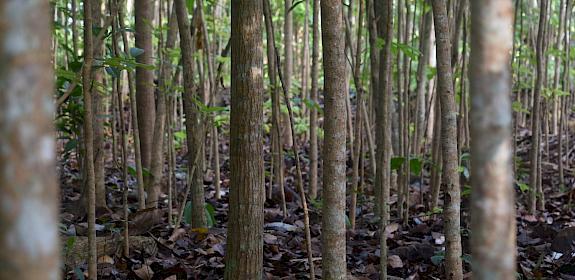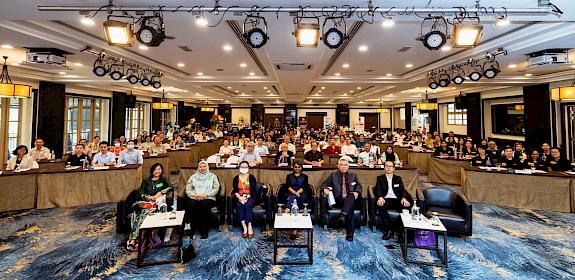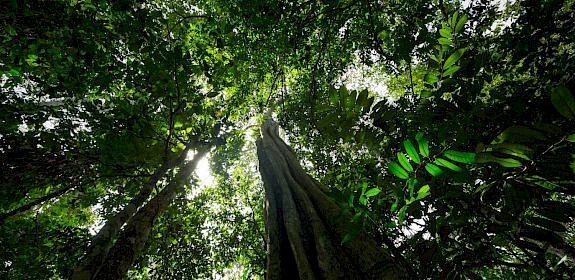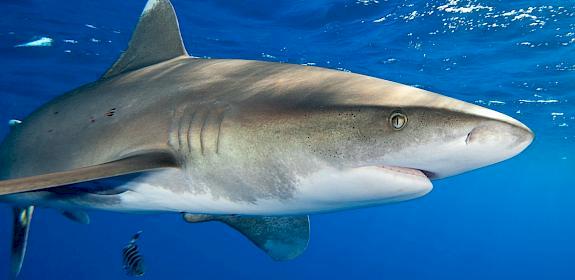
Sea cucumbers on sale © Juan Carlos Martin / Flickr
i
Ensuring that trade is within sustainable limits is at the core of CITES
The trade of CITES-listed species is only allowed if the Scientific Authority of the exporting State has advised that “such export will not be detrimental to the survival of that species”, or in other words, has submitted a non-detriment finding (NDF). Solid and reliable NDFs are a critical step to ensure the export of any specimen will not negatively impact the survival of that species in the wild, and thus, are key to the effectiveness of the Convention.
Resolution Conf. 16.7 (Rev Cop17) on NDFs was initially formulated from the proceedings of a workshop in Cancun, Mexico in 2008 that sought to equip Parties with the tools required to make accurate NDFs. This resolution states that NDFs should be the result of a science-based assessment and encourages Parties to share experiences and provide assistance to other Parties where possible to improve their capacities to formulate NDFs.
To support Parties with this task, TRAFFIC has produced 9-step guidance and online learning tools for formulating NDFs in plant and shark species in collaboration with the German Federal Agency for Nature Conservation (BfN). TRAFFIC has piloted the 9-step guidance at workshops held in several countries to seek feedback on current usability and areas for improvement. TRAFFIC has also been working in Oceania with the South Pacific Regional Environment Programme (SPREP) and the South Pacific Community (SPC) to develop guidance and tools to assist Oceania Parties to develop NDFs for listed Sea Cucumber species.
Draft decisions in CoP19 Doc 43.1 direct the Secretariat to organise a second international expert workshop on NDFs, with the assistance of the Animals and Plants Committees, where draft guidance materials on NDFs are to be reviewed, advanced, or completed. TRAFFIC is keen to support Parties in this work and has continued to improve and further develop its 9-Step guidance and e-learning tools based on Parties’ feedback.
TRAFFIC also supports the proposal by the UK in CoP19 Doc. 43.2 calling for a collaborative workshop involving relevant Parties, Regional Fisheries Management organisations, Regional Fisheries Bodies, Multilateral Environment Agencies, the fishing industry, non-government organisations and scientists to develop technical and practical guidance steps to improve the ability of Parties to make NDFs where the catch of species occurs in areas beyond national jurisdiction. This proposal also complements the ongoing initiative by the German Government focusing on the technical outputs needed to progress this work. An important consideration is also how to develop regional NDFs for marine species where more than one CITES Parties are catching individuals from the same stock or population of a species.
The structure of a NDF can often start with limited data but identify key harvest/trade data that should be collected to feedback and strengthen a NDF as it is revisited (adaptive management) in progressive years. For example, when looking at sea cucumber NDFs, TRAFFIC noted the key role traders play in the supply chain prior to export by them being able to provide information on numbers and sizes of dried individuals to the CITES Scientific Authority that can then be fed back at the end of a season for monitoring stock health and checking on compliance with catch limits.
TRAFFIC will continue to support this and other relevant work by CITES through further development of the 9-step guidance- to improve the capacity of all Parties to complete up-to-date and accurate NDFs that support sustainable trade in CITES-listed species.
Join TRAFFIC and BfN at a side event at CoP19 to exchange experiences and learn more about the 9-step guidance (Caribe 5, 19:00, 21 November).






